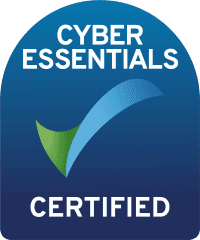Got a lot of questions about tax, National Insurance, business records and expenses?
Our articles will build your confidence by guiding you through everything you need to know to get started. There are useful tips from others who have been where you are now and practical case studies to help you along the way.
We will publish small articles to help you get to grips as a new employer as we know there is a lot to take in when you first setup your start-up business.
If you have any questions, please feel free to post them here.
Telling HMRC you have started in business
When you first start a business it can be a very busy time.
You may have to buy stock, make the products you will sell, advertise your business or set up a website.
All of these are important jobs, but you need to remember to tell HMRC that your business has started. This is called 'registering as self-employed'.
This may sound formal but it is easy to do.
However, if you are going to work for one person or company then the work you do for them may not be on a self-employed basis - you might be classed as an employee.
For further information go to HM Revenue & Customs: Employment status: employed or self-employed
In this section we will cover how and when you need to register your business with HMRC.
What am I registering for?
As a self-employed sole trader you will need to fill in a Self Assessment tax return each year so that you can give HMRC details of your earnings and any other income you get during the tax year.
The Income Tax year runs from 6 April to the following 5 April.
You may also have to pay Class 2 National Insurance contributions - we will cover these in more detail later in this tutorial.
So, by registering as self-employed, you are registering for both Self Assessment and Class 2 National Insurance contributions.
Let's find out what this entails.
 It's important to tell HMRC that you are self-employed as soon as possible.
It's important to tell HMRC that you are self-employed as soon as possible.
If you don't, you may have to pay a penalty.
You don't want to pay more to HMRC than you have to as it is a waste of your money.
Your business has started when you start to advertise or you have a customer to buy your goods or services.
It is at this point that your business is 'trading'. You cannot register before you start trading.
For example, if you advertise your business in the local newspaper on 15 January but do not get your first customer until 29 March; in this case, you have been trading since 15 January.
You must tell HMRC within six months of the end of the tax year in which you start self-employment.
You must therefore register by 5 October.
But it's best to register well before this so that you do not forget to do so.
How do I register?
HMRC would like you to register your self-employment online.
This is the quickest and preferred way and you can use the HMRC Online Services to do this.
You can access the registration service direct through the HMRC website
Using the HMRC Online Services will also enable you to register for any other business taxes in one visit - VAT, for example.
Additionally you will be automatically signed up and enrolled for the associated online service.
So, if you use the service to register your self-employment you will automatically be signed up for Self Assessment Online.
This will allow you to fill in and send your Self Assessment tax return online to HMRC.
Once you have registered for Self Assessment HMRC will give you a Unique Taxpayer Reference (UTR).
A UTR is a 10 digit reference number like this:
2134023210
You should make a note of your number as you will need it in future, to send your tax return online for example. We will cover this later.
Summary
That completes this section on telling HMRC that you have started self-employment. Let's review the key points:
You must tell HMRC within six months of the end of the tax year in which you start self-employment. You must therefore register by 5 October but it's best to do so before this.
- The quickest way to register your self-employment is to use the HMRC Online Services.
- The registration process registers you for both Self Assessment and Class 2 National Insurance contributions.
- Make a note of your Unique Taxpayer Reference (UTR) as you will need this at a later date.
Courtesy of HM Revenue & Customs



